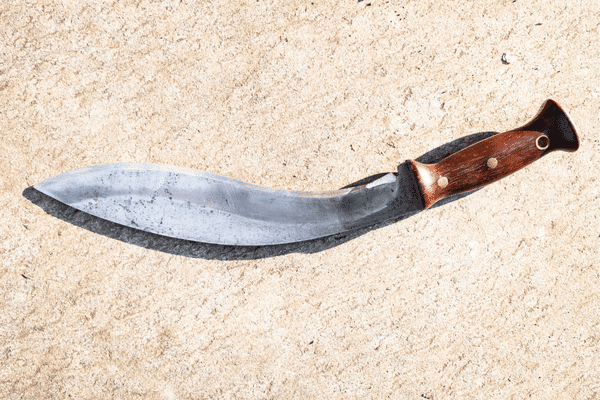The Zweihander Sword: Unveiling the Mighty Two-Handed Blade.
A Journey Through History and Evolution.
Introduction:
The Zweihander, a highly renowned two-handed blade, has had a profound impact on European history and combat customs. This article sets out to explore the intriguing origins and development of this recognizable weapon.The Early Roots:
The Zweihander's Humble BeginningsIn the 16th century, a new breed of sword emerged in Europe, one that would go on to capture the imaginations of warriors, historians, and enthusiasts for centuries to come. The Zweihander, which translates to "two-hander" in German, was designed with one primary objective: to deliver devastating blows on the battlefield.
Design and Development:
Forging the Giant BladeThe Zweihander was characterized by its enormous blade, typically measuring over five feet in length. The design of this massive weapon evolved to address the changing demands of warfare. Initially, it was intended for use by the Landsknechts, German mercenaries renowned for their formidable fighting skills.
Extended Reach and Sheer PowerThe defining feature of the Zweihander was its extended reach. With a blade that measured between 4 and 6 feet, it provided a significant advantage on the battlefield. This extra reach allowed Zweihander-wielding soldiers to strike at opponents from a safer distance while maintaining a powerful offensive stance.
The Landsknechts and their Zweihanders:
The Rise of the Mercenary SwordsmenThe Landsknechts were a diverse group of mercenaries who fought in various European conflicts. They adopted the Zweihander as their signature weapon, utilizing its length and mass to break enemy lines and create havoc on the battlefield. These soldiers became renowned for their disciplined use of this formidable weapon.
Impact on Tactics:
The Zweihander on the BattlefieldThe presence of Zweihander-wielding soldiers on the battlefield brought about significant changes in tactics. Their ability to break enemy formations and create openings in the front lines was unparalleled. This gave their allies an advantage in battles.
The Twilight Years:
Decline in Zweihander UsageAs the dynamics of warfare evolved and firearms became more prevalent, the Zweihander's prominence waned. The battlefield shifted from close-quarters combat to ranged engagements, making the Zweihander less practical.
Legacy and Influence:
The Zweihander's Enduring LegacyWhile its days as a primary battlefield weapon were numbered, the Zweihander left a lasting legacy. Its design and impact on tactics inspired other military innovations and played a significant role in the development of later European swords.
Modern Revival:
Rekindling the Zweihander FlameIn recent years, the Zweihander has experienced a resurgence of interest among historians, martial artists, and collectors. Modern enthusiasts study its techniques, and skilled swordsmiths craft faithful replicas, rekindling the spirit of this historic weapon.
Conclusion:
The Zweihander's Enduring AppealThe Zweihander sword, with its awe-inspiring size and historical significance, continues to captivate those intrigued by the weapons of the past. Its legacy lives on in the hearts of enthusiasts, and its story reminds us of the ever-evolving nature of warfare and the weapons that shape our history. As we explore the Zweihander's history and evolution, we gain a deeper appreciation for the immense impact this weapon had on European martial traditions and warfare.
In conclusion, the Zweihander's journey from its humble origins to its modern-day revival is a testament to the enduring appeal of this legendary two-handed sword. Its historical significance, unique design, and impact on tactics make it a captivating subject for anyone interested in European martial history and the evolution of weaponry.
Also, read Forging Legends: The Zweihander Sword's Magnificent Anatomy.
.png)



Comments
Post a Comment